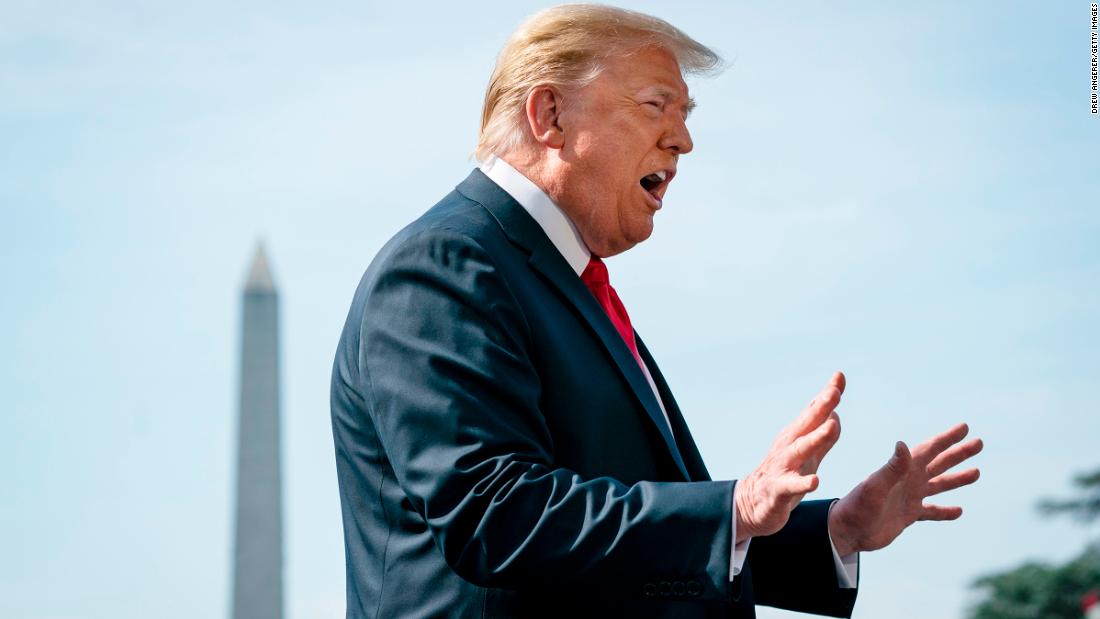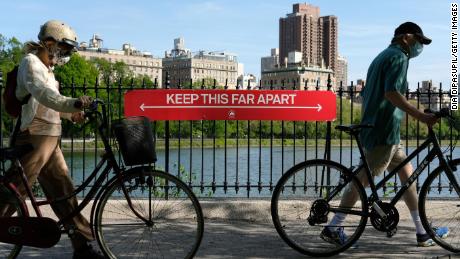Analysis: Trump’s self-defeating resistance to masks says it all
“It’s hard to explain,” says Mark McClellan, a former health adviser to President George W. Bush who’s now at Duke University.
But his failure to promote mask-wearing stands out. He’s had more than two months to consider it, after his former US Food and Drug Administration Commissioner Scott Gottlieb recommended masks as a critical tool for reopening the economy.
Ever since, as the pandemic has surged and ebbed and surged again, Trump has had one chance after another to heed the recommendations of public health officials and tell Americans to wear masks to reduce viral spread. He hasn’t.
In April, Trump said a masked president wouldn’t look right. More recently, he suggested some Americans wear masks to signal disapproval of him.
Privately, administration aides complain they’ve been burned by shifting public health advice as scientists struggle to understand a new disease. Like Trump, some officials at first warned masks might produce false confidence.
Even Dr. Anthony Fauci, the government’s leading infectious disease authority, initially opposed mask-wearing by average Americans for fear of draining supplies needed for health care workers. Fauci later reversed course, saying last week that those still balking at mask-wearing need to “get past” political objections and “look at the data.”
Yet Trump leads a party that, by ideology and temperament, has grown deeply skeptical of government mandates and scientific expertise. Many in the GOP, which increasingly relies on white voters without college degrees, look askance at higher education itself.
So libertarian Republicans oppose mask requirements as infringements on personal choice, while others on the fringes see plots against their freedom. Of 20 states that have implemented broad mask-wearing requirements, just four have Republican governors.
“This is due to the misinformation surrounding mask-wearing, as well as their skepticism about a mask’s capacity to help stop the spread,” the GOP polling firm Public Opinion Strategies concluded in a recent analysis of attitudes in Ohio.
Trump could correct that misinformation. Had he done so two months ago, says Democratic public health expert Andy Slavitt, the US would have suppressed the virus enough by now to “have an open economy and no mask-wearing.”
“Universal masking is the most obvious and least intrusive intervention that states with large epidemics can now reach for,” Gottlieb, the former Trump administration official, tweeted last week.
As the pandemic worsens, McClellan hopes “reality will set in” and produce “leadership on the conservative side.” There are signs of movement.
Trump’s deferential Vice President Mike Pence has begun wearing masks in some public appearances. Trump-friendly Republican governors in the Sunbelt, who earlier followed the President’s call to re-open their economies before public health officials considered it safe, have been shaken by rising infection among their constituents.
Republican Gov. Ron DeSantis of Florida still won’t require mask-wearing in public as cases hit record levels, but he let local governments do so.
“Everyone should just wear a damn mask,” GOP Sen. Marco Rubio said.
Republican Gov. Doug Ducey of Arizona adopted the same stance as DeSantis. Gov. Greg Abbott, R-Texas, continues to resist mandatory statewide mask-wearing, but now praises local officials for requiring them at businesses.
The mask mandate imposed by the city of Phoenix gave Trump a fresh example to shift course last week when he traveled there to address conservative students. The stakes had been raised days earlier by his Tulsa reelection rally.
But Trump let the opportunity pass. He ignored the Phoenix mask mandate, and allowed his audience to do the same.
![]()




